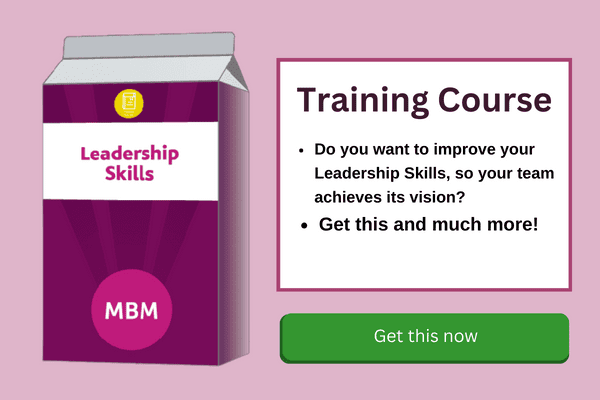Rethinking the Skills Managers Need in a Changing World
Competencies for managers are the essential skills that enable managers to motivate teams, create successful work cultures, handle issues, and navigate change. Although the work environment is changing, what remains consistent is that managers influence engagement and performance more than any other factor. Therefore, their competencies are critical. As testimony to this, Gallup’s 2021 research revealed that 70% of the variance in teams’ engagement was determined solely by the manager.
The Lasting Effect of COVID on Competencies For Managers
When Gallup did their research, the pandemic and the ensuing economic crisis were challenging business people’s notions about leadership skills and competencies for managers. Updating this article in May 2024, MBM writer Charles Smith says, “In the pandemic, people running businesses had to think on their feet, be agile and pivot, or die. No one knew what was going to happen, so they had to work out for themselves how best to prioritise work, manage projects, and keep staff onside.” In short, there weren’t enough articles like this!
Well, we’ve moved on. These days, managers increasingly realise that to engage employees and retain talent, they must strengthen their leadership skills and be people-focused. Hence, we start this article by looking at the ‘evergreen’ core competencies for managers and end with some insights from COVID on additional competencies focusing on empathy, compassion and well-being, to help you navigate the changing business world.

What This Article Covers
- What are core competencies in management?
- Behavioural competencies in managers
- What are the key competencies of a manager?
- 5 management competencies
- What are the 10 different skills a manager requires?
- What are the 13 core competencies?
- Competencies for managers – some examples
- Lessons from the pandemic
- Final tips: Further reading: competencies for managers in a nutshell: and how MBM can help
So, let’s get started!
What Are Core Competencies in Management?
C.K. Prahalad and Gary Hamel introduced the concept of “core competencies” being the resources and capabilities that give businesses strategic advantage. In modern management theory, a company must define, develop and exploit its core competencies to stay competitive.
Robert Katz identifies three types of management skills:
- Technical skills: The skills and technical knowledge you need to perform in your industry sector.
- Conceptual skills: Being able to act strategically and plan for the longer term.
- Soft skills: The human and interpersonal skills you need to get the best out of the people you work with.
Competencies for managers cover all these areas.
Sticky Learning ® is 7 times more effective than 1-day training courses. Plus, you will get a Chain of Evidence proving your Return on Investment. Discover soft skills training that changes behaviours long term.

What Are Behavioural Competencies for Managers?
David McClelland advocated the term “behavioural competency” in 1973. This term pops up in job descriptions and adverts. Moreover, behavioural competencies are the sum of the traits, abilities, and motivations needed to deliver effective performance, whatever the job. Another term for behavioural competencies is soft skills, sometimes also called “general competencies.”
Furthermore, behavioural competencies provide a substantial set of behaviours which align a business’s vision and goals with measurable outcomes that contribute to achieving success. Examples you see in job ads include achievement orientation, fostering communication, attention to detail, and client focus.
What Are The Key Competencies of a Manager?

Michael M. Lombardo and Robert W. Eichinger came up with a total of 67 attributes they identified as critical to leadership success. This shortlist sums up the conceptual skills and soft skills managers need in their competencies:
- Strong interpersonal communication: Awareness of people’s feelings, and finding the right words.
- Ability to lead and motivate, including finding the right words.
- Clear written communication: Avoiding misunderstandings.
- Honest and ethical: Setting an example, and putting the company first.
- Ability to spot people’s potential and develop it: Giving people an equal chance.
- Strategic planning: Being firm, but also listening.
- Creative thinking: Leading the way, but supporting others and welcoming their ideas.
- Conflict resolution: Listening to both sides.
- Delegating tasks and trusting others to deliver.
- Finally, appreciating and supporting diversity and inclusivity.
5 Management Competencies For Managers
When it comes to meeting company goals and achieving results, Trainingindustry.com reckon managers need these competencies:
- Clarity on responsibilities and priorities: Make sure you’re clear on what to focus on today.
- Effective delegation: You don’t have to do it all yourself.
- Respect for colleagues and subordinates: Everyone works in different ways. Respect individual work styles and encourage collaboration.
- Big-picture vision: Understand how your role contributes to implementing the company’s strategic goals. If those goals aren’t clear, ask your senior managers to provide clarity.
- Self-awareness: This last point is very comforting! Being able to lead, while being conscious that you don’t have all the answers, is a sign of an effective manager – and an effective leader.
What Are The 10 Different Skills a Manager Requires?
Predictiveindex.com suggest these:
- Communication
- Leadership
- Strategic thinking
- Organisation and time management
- Problem-solving
- Decision-making
- Conflict resolution
- Emotional intelligence
- Adaptability
- Coaching and mentoring
This next bit is probably the hardest part of this article to take in, but it’s worth the effort.
What Are The 13 Core Competencies For Managers?

The management intelligence website Drypen. It identifies the following 13 core competencies for managers:
- Team leadership
- Values and ethics
- Drive for results
- Quality Orientation
- Planning and organising
- Analysis and problem-solving
- Relationship management and collaboration
- Developing people
- Adaptability and managing change
- Service orientation
- Entrepreneurial flair
- Risk management
- Visionary and strategic thinking
Let’s look at these in detail:
In a small business, the owner-manager needs to be competent in all these areas. However, from experience, it’s hard for one person to achieve all that! As businesses grow, different department managers will have specific functions, and hence specific focuses. Nonetheless, every manager needs a level of competency in each area to work effectively with colleagues in other departments and outside.
Based on personal experience, we can categorise business departments as follows:
- Internal-facing: Primarily supporting other departments
- External-facing: Focused on working with customers
- Strategic: Leading the company
Competencies for Managers: Internal-facing:
In an internal-facing department, the manager needs to be personally competent in the following areas:
#1: Team leadership:
- Set and champion a clear direction and demonstrate the actions expected in others, including a high standard of performance.
- Take responsibility, not just for the department’s deliverables, but for enabling the business’s success.
- Set high standards of performance for themselves and others, and provide clear direction for the team to achieve the objectives.
#2: Values and Ethics:
- Abide by a strict code of ethics and behaviour: Choose an ethical course of action, do the right thing, even in the face of opposition, and encourage others to do the same.
- Act fairly: Treat others with honesty, fairness and respect: make decisions that are objective and just.
- Take responsibility: This includes accomplishing work goals within agreed timeframes: take responsibility for your decisions and actions, and those of your people: and learning from your mistakes.
#3: Drive for Results:
- Motivated by success, and passionate about achieving it.
- Persisting to complete tasks, even in the face of difficulties, and staying optimistic.
- Taking ownership of the activity you’re responsible for, and looking for ways to improve.
#4: Quality orientation:
- Promoting and maintaining high standards of quality at work.
- Applying discipline, concentrating on detail, and constantly looking for ways to improve.
- Encouraging others to have high standards.
Competencies for managers include planning and organising, analysis and problem-solving. But they’re also about people, relationships, and change.
This is the most important point to remember – you’re dealing with people. So, here are some more competencies for internal-facing managers from Drypen.In’s list:
#5: Planning and organising:
- Effectively organising and planning work in line with the business’s goals, by defining objectives and anticipating needs and priorities.
- Efficiently managing their own and others’ time and effectively handling multiple demands and competing deadlines: identifying goals, developing plans, estimating timeframes, and monitoring progress.
#6: Analysis and problem-solving:
- Solving difficult problems through careful and systematic evaluation of information, possible alternatives and consequences.
- Considering different information sources, evaluating the information against possible courses of action, and carefully deliberating before making final decisions.
#7: Relationship management and collaboration:
- Building relationships with different people across levels and functions, and treating external suppliers fairly.
- Giving equal attention to all ‘internal’ customers.
- Focusing on welcoming diversity and deepening relationships with other departments and internal and external customers.
- Handling disagreements and conflicts, and seeking to resolve them.
- Understanding others’ underlying concerns, emotions and feelings.
- Sensitising, educating, and making others aware of the need to leverage relationships.
- Showing, and encouraging, mutual respect.
#8: Developing people:
- Desire to work to develop employees’ long-term growth.
- Appreciation that fostering people’s development makes them more likely to meet the business’s goals better, be more productive, and have more job satisfaction.
#9: Adaptability and managing change:
- Being open and responsive to change: Changing the plan, goal or project to change the situation. The adoption of a change mindset remains one of the most critical leadership skills.
- Personally willing and able to work effectively and adapt to change: Flexing personal style and approach to what’s required and adjusting to the changing needs.
Managers in customer-facing operations like sales and marketing need these next two competencies:
#10: Service orientation:
- Firstly, understanding and anticipating the needs of customers and consumers.
- Next, partnering with customers, where appropriate, to create the best results.
- Tracking market trends and creating products and solutions to help customers address changing consumer needs.
- Importantly, providing staff support to help them achieve results.
- Creating and managing a positive perception of the company and its products in the customers’ minds.
- Becoming a trusted adviser and educator to customers.
The leading marketing-driven businesses encourage their managers to think like entrepreneurs. This brings us to our next competency
#11: Entrepreneurial flair:
- Spotting business opportunities and realising them, by generating creative ideas and applying sound commercial acumen.
- Taking an innovative approach to problem-solving, “thinking out of the box,” going beyond the conventional, and willingness to try different solutions.
- Championing innovation, and encouraging new ideas from employees.
The final two competencies for managers demonstrate their leadership potential:
#12: Risk management:
- Understanding, identifying, assessing and managing risk, while striving to attain objectives.
- Conducting risk assessment when identifying or recommending strategic and tactical options.
- Providing organisational guidance on risk.
#13: Visionary and strategic thinking:
- Providing direction and communicating the vision to encourage alignment in the business.
- Having the mindset and skill to address the range of issues that affect the business, and lead the team in responding appropriately.
What New Competencies for Managers Has COVID Given Us?

The pandemic left many employees with a sense of lost control, stress, panic, and emotional disturbance, which managers had to deal with in the aftermath as business returned to normal.
Writing in 2021, MBM writer Emma Worden identified the following additional competencies for managers to develop: empathy, transparency, well-being, taking regular breaks and time off, respecting and supporting mental health, and taking on board new technology. Now, let’s look at where we are with all this in 2024:
1. Demonstrate Empathy
Compassion and emotional intelligence are fundamental leadership skills. All in all, managers need to support their staff and make a positive difference in their lives. That way, they show they care about employees’ personal and professional challenges. So, put yourself in your employees’ shoes to understand their thoughts and feelings. Cultivating empathy, especially in stressful situations, creates firm bonds of trust.
The most critical management competencies during COVID were:
- Being an active listener.
- Encouraging passive employees to speak up.
- Leaving bias and judgment behind.
- Taking a personal interest.
In the present, the goal is to show you care, not only as a manager but as a human being. So, connect with your employees and listen to their stories about their family members’ illnesses, what’s happening with their kids, and so on.
Furthermore, try to make space for one-on-one meetings. Create an opportunity to ask employees about both their private and professional lives. That way, you create psychological safety for your employees and prove their feelings matter to you.
2. Communicate With Transparency
Inspiring transparency is one of the core competencies for managers – not only in a crisis but always. Additionally, it’s about offering honest, correct, and detailed information about your company’s progress.
Furthermore, be equally clear about the things you know and those you do not know. Communicate honestly – even when you do not have answers to employee questions. As one of the vital leadership skills, transparency should enable two-way communication between employees and management.
All in all, a lack of transparency may harm employees’ trust, and make them feel underappreciated and doubtful about their managers’ leadership skills. Furthermore, it may raise stakeholders’ suspicions about what their leaders know, and how ready they are for the unexpected. So here are a few ways to boost transparency in the workplace:
- Prioritise communication, both in-person and via online channels.
- Importantly, invite feedback and make it a two-way process.
- Track employee performance and make the metrics available to everyone in the team via cloud HR tools.
3. Practice Wellbeing Leadership
Managers in both large and small businesses agree that COVID has had a lasting effect on employee well-being. Out of this, one of the main new competencies managers need is wellbeing management. Overall, the goal is to approach the workplace from different standpoints, including physical, psychological, social, cultural, economic, and spiritual.
4. Encourage Employees to Take Regular Breaks and Time Off
Employees often fail to manage their time and balance their private and professional lives. These problems can trigger tiredness, job dissatisfaction, and ultimately, burnout.
5. Add Mental Health Support to Your Employee Benefits
COVID changed the world as we know it, with people experiencing continuous anxiety, stress, and depression. Thankfully things have since improved, but it’s still important to show compassion and support your people’s mental wellbeing. So, help them channel nervous energy and provide mental health resources and services.
6. Automation Remains One of the Key Competencies for Managers
The last few years have seen a growth in business automation and online transactions. Furthermore, in customer-facing businesses, automated operations now streamline many repetitive and routine tasks that once required human-to-human contact.
Additionally, other tools allow businesses to centralise many processes. For instance, some offer sales, CRM, manufacturing, inventory management, orders, and POS under a single platform. Also, hyper-automation and orchestration of cross-domain workflows are enhancing existing project management competencies by helping centralise their automated tools and workflows.
One example of automation is inventory management. This is one of the most time-consuming tasks and is prone to human error. Hence, businesses need to automate the process. So, the implementation of MRP software lets you synchronise the entire manufacturing inventory management system.
Most importantly, MRP solutions integrate with many third-party software solutions, including shippers, e-commerce platforms, accounting tools, and payment gateways. Consequently, you increase the transparency of your business operations and manufacturing processes. Furthermore, not only that, you make your team’s work less repetitive and hence more interesting. Additionally, you improve your relationships with suppliers and customers. So it’s good news for everyone.
AND FINALLY: Focus On These Critical Competencies, And Check Out MBM’s Training Courses

All in all, there’s a lot to take in. Indeed, you could go into meltdown trying to do it all! Instead, start by grasping this. Summing up, the critical competencies for managers remain these:
- Relating well to people.
- Developing strong working relationships with your direct reports and superiors.
- Managing internal and external stakeholders well.
- And navigating office politics to achieve your goals.
There’s plenty of further reading online, including downloadable PDFs. Simply search for ‘managerial competencies’ and ‘competencies for managers.’ Additionally, training and coaching are available for all this, and we can help with that. Therefore, ask us!
All in all, training and coaching is a simple way to develop the competencies you need to become a successful manager. So, talk to the experts at Making Business Matter.
We are the soft skills training provider to leading manufacturing and retailing companies, partnering with them to increase their sales and profits. Furthermore, they chose us because of our money-back guarantee, our relevant experience, and because we make their learning stick. If you’re interested, learn more about our training.
Updated: May 2024 by Charles Smith




